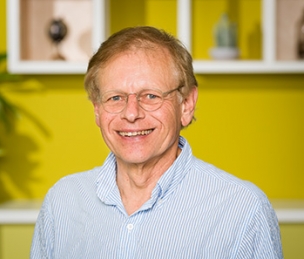Displaying 1 - 8 of 8
-
Brown, P., & Levinson, S. C. (2012). Cultural differences and universals in interaction. Talk presented at the 111th Annual Meeting of the American Anthropological Association. San Francisco, CA. 2012-11-14 - 2012-11-18.
-
Gisladottir, R. S., Chwilla, D., Schriefers, H., & Levinson, S. C. (2012). Speech act recognition in conversation: Experimental evidence. Poster presented at the 34th Annual Meeting of the Cognitive Science Society (CogSci 2012), Sapporo, Japan.
-
Levinson, S. C. (2012). Connections across modalities in interaction. Talk presented at the Workshop on Modalities in Interaction, Max Planck Institute for Psycholinguistics. Nijmegen, The Netherlands. 2012-10-04.
-
Levinson, S. C. (2012). Introduction to linguistic relativity. Talk presented at the workshop Relations in Relativity: New Perspectives on Language and Thought. Nijmegen, The Netherlands. 2012-05-09 - 2012-05-11.
Abstract
-
Levinson, S. C. (2012). Re–centering the study of language on its communicational foundations [Keynote lecture]. Talk presented at the 4th UK Cognitive Linguistics Conference, King's college. London. 2012-07-10 - 2012-07-12.
Abstract
Recent work in semantic and syntactic typology reinforces the idea that most of the structure of languages and especially the patterned variation across them is cultural rather than innate. This leaves somewhat unexplained why humans have languages of a kind that other species don’t. The explanation, I’ll argue, is that there is a rich underlying universal infrastructure of communicational abilities that must fundamentally affect the way languages are organized. I’ll review two aspects of this infrastructure: turn-taking and speech act coding and explore how this communication perspective might have substantial consequences for how we think about language structure. -
Levinson, S. C. (2012). The role of genetic and cultural processes in language. Talk presented at the Ernst-Strungmann Forum on Cultural Evolution. Frankfurt, Germany. 2012-05-27 - 2012-06-02.
Abstract
This paper begins from the observation that human communication systems are unique in the animal world in varying on every level of form and meaning across social groups. There are some 7000 languages, each differing in sound systems, syntax, word formation and meaning distinctions. New information about the range of diversity and its historical origins has undercut the view that language diversity is tightly constrained by “universal grammar” or a language-specialized faculty or mental module. Instead languages seem rather to be historical accretions of finely honed practices, the product of cultural evolution and diversification over millennia. -
Levinson, S. C. (2012). Words from other worlds. Talk presented at the Workshop on the 60th birthday of Prof. Gunter Senft at the Max Planck Institute for Psycholinguistics. Nijmegen, The Netherlands. 2012-08-30.
-
Norcliffe, E., Konopka, A. E., Brown, P., & Levinson, S. C. (2012). Linguistic structure and planning scope in language production: Evidence from Tzeltal. Talk presented at the Interactional Foundations of Language Workshop. Schloss Ringberg, Germany. 2012-11.

Share this page